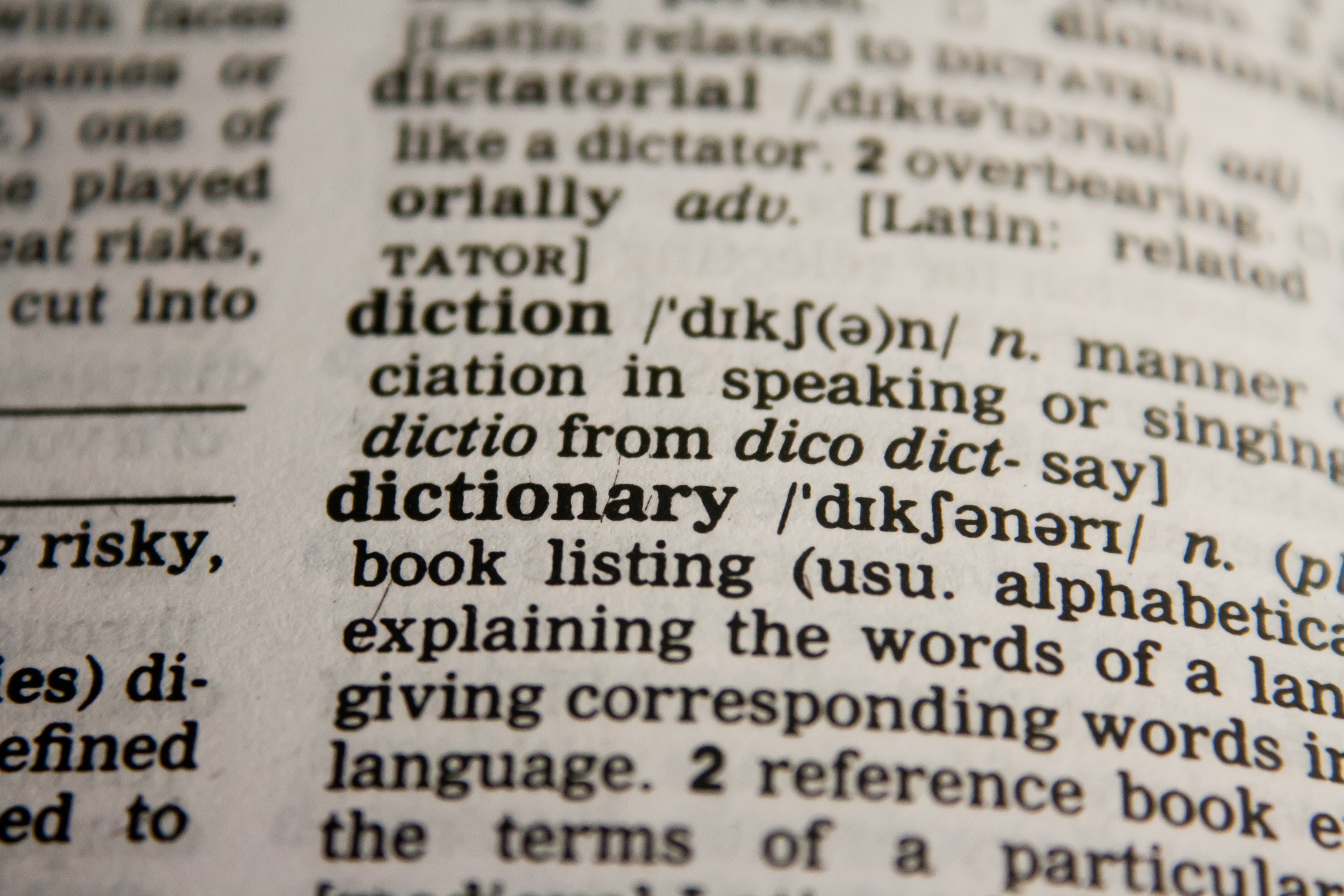Language learners should reconsider how they use dictionaries in their studies. They are powerful tools, but they are misleading. The dictionary should not be the magical device to tell you which words to use. For me, it is very cringeworthy to see learners literally translate a sentence with the help of a dictionary. Unfortunately, language learning is a lot more complex, and dictionary problems can trip many learners up.

In the same way that calculators are necessary tools for scientists and mathematicians, dictionaries are necessary tools for language learners. HOWEVER, all students know that overuse of the calculator can be detrimental to the development of your skills. It is not, however, just about the fact that you should memorize more. No, nobody can memorize the whole lexicon of their target language. Still, issues with the structure of dictionaries can be a pitfall for many. Dictionary problems are more common than learners think for quite a few reasons.
Limitations of a traditional dictionary
The most common mistake learners make with dictionaries is to go for one-to-one translations. If I wanted to translate this sentence into Japanese, dictionaries would fail me:
He is my brother.
How could a simple sentence be so mistranslated? Assuming languages work as 1:1 converters is a huge mistake. For one, if I wanted to use “he,” the dictionary would give me a correct and accurate translation. The problem is that it would not warn you that Japanese people don’t usually use that word. The equivalent of the English “he” is really only used as “he” when translating writing from European languages, where that pronoun is common. Traditionally, Japanese would word things quite differently.
That’s not to mention the fact that “brother” has several translations into Japanese, which all depend on whether the brother is older or younger, whether he is your own brother or someone else’s. All of that nuance and complexity is oversimplified in a dictionary.
That is not to say the dictionary is lying. Those translations are accurate. The issue is that you did not ask the right questions.
When you speak German, you have to ask yourself whether “eat” is about a human’s eating or an animal’s eating. In Korean, you have to ask yourself whether “return” refers to going to the original place or taking something to the original place. Those words translate into English as “eat” or “return,” but you didn’t do your due diligence to ask the right questions.
The importance of cultural knowledge
Even if you know every word to form your sentence in a language, which a dictionary can help you with, the issue of cultural ignorance persists. If asking age is off limits, you need to know. What about if asking age is necessary for every interaction? Still, you need to know. Dictionaries cannot help you through warnings that “this word is a lot ruder than in your native language.”
As we already know, learning the culture of your target language’s speakers is necessary. In the discussion of word choice, this remains the same. Knowing about the culture’s conception of schedules can tell you that certain tenses may be interchangeable. If you knew that certain words are actually reserved for dogs, you can avoid some huge faux-pas in your speech.

All this cultural knowledge is absent from dictionaries. You need to know some outside information. The dictionary cannot tell you that “this is the word you want, but it has a nuance of intentionality.”
Grammar necessitates certain words
Grammar is also important to choosing how you express yourself in your target language. Some information can be expressed by affixes in one language but in another word in another.
Je le ferai – I will do it
For example, we have the word “will” in English that expresses a future action. If you searched the dictionary for that word, you will get a — for that entry. That means French people don’t talk about the future? Not at all. In fact, French is slightly stricter about the future. How do they express it without “will”? They use unique stems for each verb. They express the same information differently. If someone was misinformed enough to search “will” in the French dictionary, they will find nothing there. For talking about time, the dictionary failed those French learners.
Je fais du sport et une salade – I do exercise and make a salad
A distinction that English makes but others rarely do is the “make and do” distinction. For many languages, you make/do exercise, and you also make/do a salad. If a speaker of a language like that looks in the dictionary. There are two entries that the dictionary gives them. In that sense, the dictionary problems concern conflating two distinct words (for English speakers).
見せてあげる – I’ll show you
In Japanese, they use an auxiliary verb that we do not use in English. To express an action is for someone, they add the auxiliary verb “give.” On top of that, they have multiple words for give, which depend on if the action happens for the speaker’s inner circle or if the action happens for the listener or if you receive the action from someone you respect. A lot of information is expressed in a short space in your Japanese sentence. When translated into English, there is no word that is added to the sentence. This use of “give” in Japanese has no English equivalent. Here as well, the dictionary problems push learners to make a mistake if they are not careful.
Word-building affects what words people use
Similar to grammar, the way words form and connect will influence how people word very basic expressions that you might take for granted.
싫어! – I don’t want to!

For example, in Korean, you cannot say “I want to” without a main verb like you can in English. We don’t need to say “I don’t want to eat that” or “I don’t want to go there” because the word structure allows “want” to dangle without a verb, and that is totally understandable. In Korean, that is not the case because “want” cannot stand alone. However, Koreans still say something when they refuse or are not interested in an offer. When people say “I don’t want to,” they opt for “I hate it.” They have the word for “want,” but the word structure pushes them to use another solution for the same problem. A dictionary would not give you that information and simply give you “want” without any additional warning.
J’ai [?] ans – I am [?] years old
In another part of the world, words get stapled together like a Kindergartener’s art project. Germanic languages can attach nouns to nouns, adjectives to adjectives, nouns to adjectives, and plenty more. I encountered the word mucksmäuschenstill in German recently, which means “quiet as a mouse” in just one long word.
While that may look exotic and strange to English speakers, we are not that different from Germans. In English, we do it a little less obviously because we use more spaces and hyphens, but we still staple words together despite the part of speech not matching. Think of words or phrases like “dirt poor” or “girlfriend”.
It’s this feature that influences how we talk about our age. We can modify the adjective “old” with a noun, “years.” In German, you can say “Ich bin zehn Jahre alt.” Swedish has “Jag är tio år gammal.” Likewise, English also uses “I am ten years old.”
As for Romance languages, speakers cannot staple words together and must word things as “I have ten years”. French has “J’ai dix ans,” and Spanish speakers say “Tengo diez años.” If you were to depend on the dictionary too much, you would miss this issue of word building changing the words you need. All languages have equivalents for “years,” “old,” “have,” etc., but the way the ways words are built influences the combination of those words.
Asking seemingly unnecessary information
As I mentioned, other languages ask a lot of questions to distinguish things we never consider. Dictionaries are very literal and give you the closest equivalent in a language. Another place they can fail is when the dictionary gives two entries, which are perceived as very different from natives, but the learner conceptualizes them the same.
Probably overlook / miss
Recently, I was helping my dad understand a work message. He is not a native speaker of English, so he asks me for help from time to time. There was an issue that some of his coworkers did not notice a mistake, and my dad wanted clarification whether it was a mistake, or they intended to do the task that way.
He received a text that read “They probably overlooked it.” He asked me “how can he say probably? They definitely did not see it.” He thought that “miss” was better than “overlook” in this circumstance. I had to explain to him that the person wanted to express that this was an accident. This is why he used “probably” and “overlooked.”
When we English speakers choose between the words “overlook” and “miss” we have to choose whether there was intention. This sort of question is all over the English language, which I write about on my blog all the time.
From his perspective, he did not see a difference between those words because he did not natively understand the difference. The difference is about intentionality. They are the same action but one expresses that it happened on purpose.
The dictionary problems are noticeable in this sense as well because you cannot ask it some deep nuance differences or the associations with other words.
ある・いる – there is
In Japanese, when you are using the verb “there is” or “someone has,” you must ask yourself a question that we never ask in English. It is very critical to know whether the subject is animate or inanimate. That is necessary information to Japanese speakers.
In English, if I asked “is it alive or an object?” in response to you saying that you have a cat, you would think I am crazy. On the other hand, if you use the wrong verb when saying “there is a person in the house” in Japanese, you run the risk of saying there is an inanimate (dead) human or corpse in the house.
As for a traditional dictionary, again, it fails to have a system to notify readers that this question is critical to choosing your word. They may be good tools, but the dictionary problems make it so that learners miss such critical information that can lead you talk about corpses when you meant people.

Learn languages smarter, not more
Overreliance on the dictionary can be really detrimental to language learning. Dictionaries are fantastic tools, especially when there is a simple word that you cannot remember. However, if you take this too far, the dictionary problems might lead you to wrongfully use a word where it does not belong. You could give too much information where natives opt for a simpler wording, or you could give the wrong information and call a person a corpse by accident.
It is difficult, but we need to take a more holistic approach to language learning. It is best to hear natives speak about certain topics. They might word things in a unique way that you may not have considered while avoiding a word that you use every day. It is not enough to see example sentences in the dictionary. It is critical to notice how native speakers talk about certain topics.
As I mentioned earlier, on my blog, I explain many differences in English words that might be the same for learners but are critical for a native. Usually if there are two similar words in any language, there is a reason they are unique. We need to pay attention to that.
I have a YouTube video I made a few months ago on the same topic of dictionary problems. You can watch that if you want to hear the same point expressed in different words.
Don’t take the humanity out of language learning. Dictionaries are great, but the human experience is better!